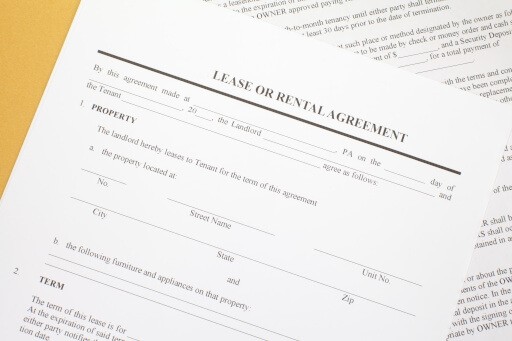Have you ever had a tenant damage your rental unit and refuse to pay to remedy it?
I have! And, while it's tempting to take them to court to get the money they owe you, it's not always worth it. Sure, your ego might be bruised, and it's your money, but the cost in small claims court filing fees, time, and time off from work for court isn’t worth it when you’re talking $200 or less.
As someone who has gone through a court case with a tenant, I can tell you from personal experience what you can expect.
1. Lost time
The biggest reason to avoid court for small amounts is the time it takes to prepare. I spent months compiling photos, reviewing landlord-tenant laws, gathering lease information, and finding and taking screenshots of conversations. All in all, it was an entire summer of work for $1,000. Was it worth it? No, not for me.
2. Cost
When I received a notice that my tenant was suing me, I filed a countersuit. With filing fees, it cost $200 just to submit the paperwork. It cost another $60 to $80 to print the photos for my court case. If the amount in question is less than that, it clearly doesn’t make sense to go to court since you'll spend more than what you might collect.
3. Day job
Going to court affects your day job. Not only do you need to take time off for court, preparing for court is distracting. For months, my mind was split between work responsibilities and my case. It caused me to not put my full effort into any one thing. I couldn't successfully accomplish anything because I was too distracted.
4. Collecting money
If you win the lawsuit, it does not guarantee the money will be collected. A judgment merely means the tenant owes you the money. However, if they do not pay it, you will need to chase them. A BiggerPockets user said it best, “Is it worth spending good money, chasing bad money?” Likely, the answer is no.
5. Added stress
Do you want to spend your time dwelling on the negative? That’s what happens. Your time and energy will be drained when caught up with a negative experience with a former tenant. It may be in your best interest to let go and move on. Use the experience as a learning lesson.
What amount is worth going to court over?
How do you determine what amount is worth suing over? Going to court can take its toll on your time and mind. However, sometimes the amount owed is worth the trouble of sending the letter of intent, filing the court paperwork, preparing for a court case, and tracking down the tenant if they do not pay.
The best way to determine the right amount owed to pursue this course is simple math.
First, think about what your time is worth. Determine what dollar amount each hour of your life is worth.
Second, determine the amount of time you will need to dedicate to the court case. You will need to consider the following:
- Reviewing the lease (Ex. 3 hours)
- Writing the letter of intent (Ex. 1 hour)
- Going to town to file the case (Ex. 2 hours)
- Reviewing and compiling evidence (Ex. 5 hours)
- Court time (Ex. 8 hours)
- If you win, time to receive the money (Ex. 5 hours)
Third, add up the monetary cost of the process. The costs could include time off work, filing fees, an attorney (if you choose) and printing evidence.
Lastly, add up the time it will take to prepare and multiply it by your hourly value. Add in the monetary cost. This number will be your break-even cost. From here, it is your preference. Would you need to double your break-even for it to be worth it? Triple?
Example
It takes 24 hours of time to go through the small claims court process. At $50 an hour, my time costs $1,200. The monetary costs are $200 for fees and $60 to print evidence. Altogether, my costs are $1,460 to break even. From there, I would compare what is owed to me. Let's say, a $200 cleaning fee is owed. Going to court over the cleaning fee would not be worth my time.
In Conclusion
Taking a tenant to court is a negative experience, whether you win or lose. Think about the real worth of the money that is owed to you. Is it worth your time and energy to go through the process of small claims court? In smaller instances, it is likely not worth the hassle. Oftentimes, a letter to a former tenant with costs owed and a friendly phone call can do the trick. While these situations can be unavoidable, screening all prospective tenants online can help you select the most qualified renter for your property. When you screen renters with Apartments.com, you can view credit, past evictions, criminal history, and more that will help you discover the best tenant for your rental.




